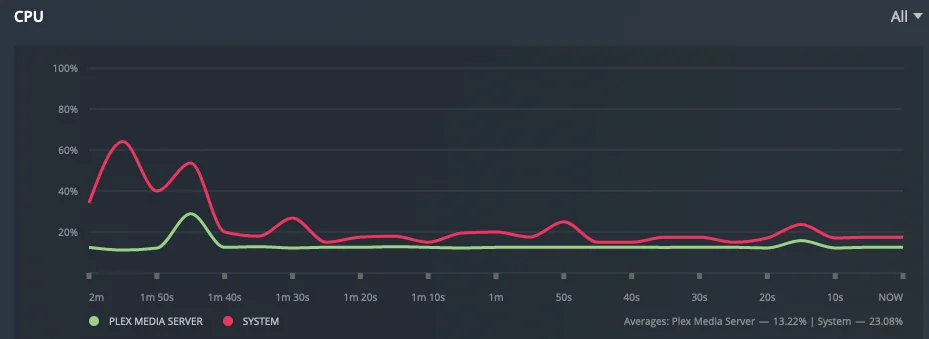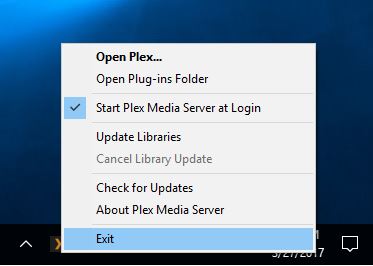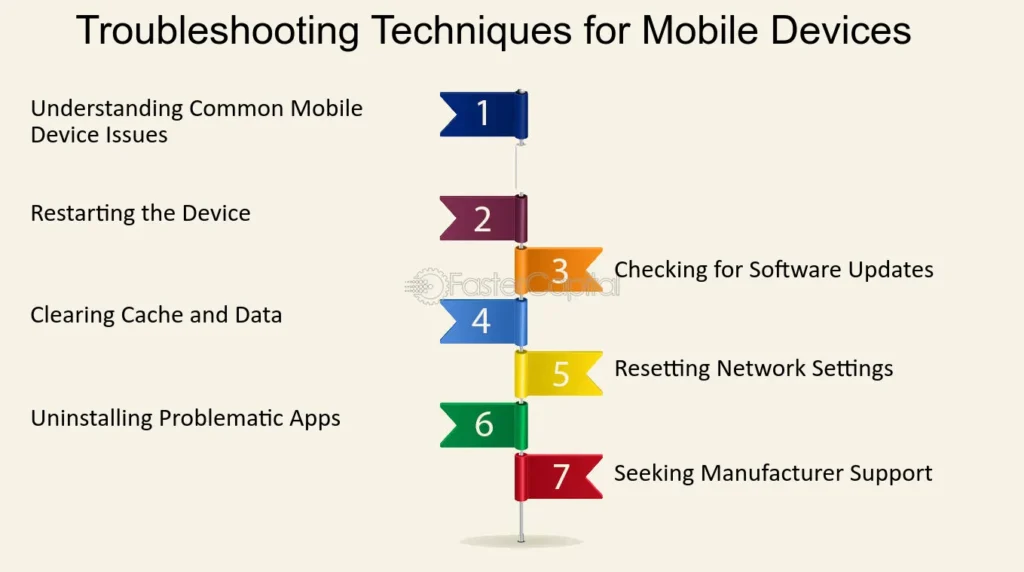“Plex Media Scanner High CPU” often happens because the scanner is working hard to index and update your media library. To fix this, try adjusting the scan settings to run less frequently or organize your media files more efficiently. Regularly updating Plex and ensuring your hardware meets recommended specs can also help.
I’ve noticed that when Plex Media Scanner was running, my CPU usage spiked significantly. Adjusting the scan settings and organizing my media library really helped reduce the load.
In this article, we will discuss “Plex Media Scanner High CPU”.
Table of Contents
Introduction
If you’re a Plex Media Server user, you might have encountered the frustrating issue of high CPU usage by Plex Media Scanner. This problem not only affects the performance of your server but can also slow down other tasks on your device. In this comprehensive guide, we’ll dive into what Plex Media Scanner is, why it might be using so much CPU, and how you can fix and prevent this issue effectively.
Understanding Plex Media Scanner
What is Plex Media Scanner?
Plex Media Scanner is a crucial component of Plex Media Server responsible for scanning and indexing your media library. It ensures that your movies, TV shows, and other media are properly organized and available for streaming.

Role of Plex Media Scanner in Plex Server
The scanner works by analyzing your media files, fetching metadata, and updating your library’s information. This process helps Plex provide a seamless and organized media experience for users.
Read Most Important: Cpu Svid Support: A Comprehensive Guide!
Identifying High CPU Usage
Symptoms of High CPU Usage
When Plex Media Scanner consumes excessive CPU resources, you might notice your system slowing down or experiencing lag. The Plex Server might also become unresponsive or crash frequently.
How to Check CPU Usage
To check if Plex Media Scanner is using too much CPU, you can monitor your system’s performance using built-in tools like Task Manager on Windows or Activity Monitor on macOS. Look for Plex processes that are consuming a large percentage of CPU resources.
Common Causes of High CPU Usage
Large Media Libraries
One common cause of high CPU usage is having a large media library. The more files Plex needs to scan, the more resources it requires.
Frequent Metadata Updates
Plex Media Scanner might be running frequent metadata updates, which can spike CPU usage, especially if your library is constantly changing or if there are frequent updates from online sources.
Inefficient Plex Server Configuration
Incorrect or inefficient configuration settings in Plex can also lead to high CPU usage. This includes settings related to scanning frequency and metadata management.
Basic Troubleshooting Steps
Restarting Plex Server
Sometimes, simply restarting Plex Media Server can resolve temporary issues causing high CPU usage.

Checking for Software Updates
Ensure that Plex Media Server is up-to-date. Software updates often include performance improvements and bug fixes that can help reduce CPU usage.
Restarting the Device
If restarting the Plex Server doesn’t help, try restarting your entire device to clear any temporary issues affecting performance.
Read Most Important: CPU Caterr Detected – Guide 2024!
Optimizing Plex Media Scanner Performance
Adjusting Scanner Settings
You can optimize Plex Media Scanner’s performance by adjusting its settings. Reduce the frequency of scans or set it to scan during off-peak hours.
Reducing the Frequency of Metadata Scans
Adjusting the frequency of metadata scans can help alleviate high CPU usage. Set scans to occur less frequently if your media library doesn’t change often.
Organizing Media Files Efficiently
Properly organizing your media files can reduce the workload on Plex Media Scanner. Ensure that files are named correctly and stored in well-organized folders.
Advanced Troubleshooting Techniques
Analyzing Plex Logs
Check Plex server logs to identify any errors or issues that may be contributing to high CPU usage. Logs can provide insight into what’s causing the problem.

Adjusting Server Performance Settings
Fine-tune your Plex server’s performance settings to balance CPU usage and overall performance. This includes adjusting transcoding settings and other performance-related configurations.
Disabling Unnecessary Plugins
If you have installed any plugins that are not essential, consider disabling them. Some plugins can cause increased CPU usage and affect overall server performance.
Read Most Important: Photolibraryd High Cpu – Complete Guide 2024!
Updating Plex Media Server
Importance of Keeping Plex Updated
Keeping Plex Media Server updated is crucial for optimal performance. Updates typically include fixes and improvements that can address high CPU usage issues.
How to Update Plex Server
Updating Plex is straightforward. You can check for updates directly from the Plex server interface, or download the latest version from the Plex website.
Hardware Upgrades for Better Performance
When to Consider Upgrading Hardware

If you’re consistently experiencing high CPU usage despite optimization efforts, it might be time to consider upgrading your hardware.
Recommended Hardware Specifications for Plex
For optimal Plex performance, ensure your hardware meets the recommended specifications. This includes a powerful CPU, sufficient RAM, and adequate storage.
Read Most Important: Coreaudiod High Cpu – Ultimate Guide In 2024!
Alternative Solutions
Using Plex Alternatives
If Plex Media Scanner’s high CPU usage continues to be an issue, consider exploring alternative media server solutions that might offer better performance.
Exploring Different Media Server Options
There are various media server options available, each with its own set of features and performance characteristics. Research and choose one that best fits your needs.
Preventive Measures
Best Practices for Media Management
Adopt best practices for managing your media library to prevent high CPU usage. This includes proper file organization, regular maintenance, and efficient metadata management.
Regular Maintenance Tips
Regularly maintain your Plex server by checking for updates, monitoring performance, and addressing any issues promptly.
Plex media scanner high cpu windows 11
The Plex Media Scanner may cause high CPU usage on Windows 11 due to continuous library scans or large media libraries. Disabling automatic scanning or reducing the scan frequency can help alleviate this issue.
Plex Media scanner high disk usage
High disk usage by the Plex Media Scanner often occurs when it’s scanning or indexing large media files. Limiting the scan frequency or excluding certain folders can reduce disk activity.
Plex transcoding CPU chart
The Plex transcoding CPU chart shows the processing load during media conversion. High CPU usage indicates intensive transcoding tasks, especially with higher resolution or complex codecs.
Plex stop scanning
To stop Plex from scanning, disable automatic library updates in the settings. This prevents the scanner from running in the background and consuming resources.
Plex Media Fingerprinter
The Plex Media Fingerprinter identifies and tags media files for easier organization. However, it can be resource-intensive, especially with large libraries.

Synology Plex high CPU usage
High CPU usage on Synology NAS when using Plex can result from transcoding or library scans. Adjusting transcoding settings or limiting background tasks can help reduce the load.
Plex limit CPU usage
To limit Plex’s CPU usage, you can adjust transcoding settings, limit the number of simultaneous streams, or set CPU usage limits in the server settings.
Read Most Important: Cpu L2 Voltage: Complete Ultimate Guide 2024!
FAQs
What is Plex Media Scanner and why does it use so much CPU?
Plex Media Scanner is responsible for indexing and updating your media library. It uses CPU resources to analyze files and fetch metadata, which can lead to high CPU usage, especially with large libraries or frequent updates.
How often should I update Plex Media Server?
It’s best to update Plex Media Server whenever a new version is released. Updates typically include performance improvements and bug fixes that can help reduce CPU usage.
Can I reduce CPU usage by organizing my media files differently?
Yes, properly organizing your media files can help reduce the workload on Plex Media Scanner, potentially leading to lower CPU usage.
What are the signs that my Plex server needs hardware upgrades?
Signs that you may need hardware upgrades include persistent high CPU usage, sluggish performance, and frequent crashes. Upgrading your hardware can improve overall server performance.
Are there any plugins that can help with Plex Media Scanner performance?
There are various plugins available, but they might not always address high CPU usage. It’s important to evaluate the impact of each plugin and disable any that are not essential.
Why is Plex using so much CPU?
Plex uses a lot of CPU when it’s scanning and indexing your media files, fetching metadata, or transcoding videos. High CPU usage can occur with large libraries, frequent updates, or if your server is not optimized.
What does Plex media scanner do?
Plex Media Scanner analyzes and indexes your media files to organize them in your library. It fetches metadata like movie posters and descriptions, ensuring that your media is easy to browse and stream.
What is run scanner tasks at a lower priority Plex?
Running scanner tasks at a lower priority in Plex means the scanning process will use fewer CPU resources compared to other tasks. This helps prevent Plex from slowing down your system during scanning operations.
How do I stop Plex from detecting intros?
To stop Plex from detecting intros, go to the Plex server settings, navigate to “Library,” and disable the “Detects Intro” option. This prevents Plex from scanning and tagging intro sequences in your media.
How do I stop CPU from using high usage?
To reduce high CPU usage, try optimizing your Plex settings, such as adjusting the frequency of scans and metadata updates. Additionally, ensure that your server hardware is up-to-date and consider upgrading if necessary.
How do I reduce CPU core usage?
To reduce CPU core usage, you can limit the number of simultaneous tasks your server performs. Adjust settings in Plex to lower the priority of background tasks and manage your media library more efficiently. Upgrading hardware or distributing tasks across multiple devices can also help.
Conclusion:
In conclusion, managing high CPU usage by Plex Media Scanner is crucial for maintaining smooth server performance. By optimizing scan settings, organizing your media library, and keeping your Plex software updated, you can significantly reduce CPU load. If these steps don’t fully resolve the issue, consider upgrading your hardware or exploring alternative media server solutions.
Read Most Important:

[…] Read Most Important: Plex Media Scanner High CPU – Ultimate Guide 2024! […]
[…] Read Most Important: Plex Media Scanner High CPU – Ultimate Guide 2024! […]